Adrenal NutraMedix 30ml
- Dodaj recenzję:
- Kod: 8266
- Producent: Nutramedix
-
Dostępność:
 Jest
Jest
-
Historia ceny
Najniższa cena 30 dni przed zmianą: 78,90 zł brutto
- szt.
- 87,30 zł

Adrenal 30 ml
Rozwiązuje problemy:
- zmęczenie nadnerczy
- wyczerpanie
Przywraca:
- energię
- wytrzymałość mentalną
- wytrzymałość fizyczną
Opis ogólny
Adrenal jest autorską mieszanką ekstraktów czterech adaptogennych roślin - Panax quinquefolium, Astragalus mongholicus, Schisandra Chinensis i Rhodiola Rosea. Ta opatentowana mieszanka dostarcza energii i uzupełnia braku w gruczołach nadnercza. Nadnercza pomagają organizmowi reagować na stres, a także wytwarzają sterydy, które przyczyniają się do produkcji ponad 100 hormonów niezbędnych dla optymalnego zdrowia. Szacuje się, że około 95% populacji Stanów Zjednoczonych cierpi w pewnym stopniu na zmęczenie nadnerczowe, które występuje w przypadku jakiegokolwiek spadku zdolności nadnerczy do wykonywania normalnych czynności.
Zgłoszone właściwości medyczne
• adaptogeniczne
• przeciwutleniające
• przeciwskurczowe
• antyseptyczne
• afrodyzjak
• wiatropędne
• przeciwzapalne
• napotne
• moczopędne
• wykrztuśne
• hipotensywne (obniżające ciśnienie)
• uspokajające
• pobudzające
• ułatwiające trawienie
• rozszerzające naczynia krwionośne
Dolegliwości medyczne
(informacje z uznanych prac naukowych - źródła w języku angielskim)
LĘK
Bystritsky, A., Kerwin, L., & Feusner, J. D. (2008). A pilot study of Rhodiola rosea (Rhodax®) for generalized anxiety disorder (GAD). The Journal of Alternative and Complementary Medicine, 14(2), 175-180.
Pełny artykuł
CHOROBA ALZHEIMERA
Hu, D., Cao, Y., He, R., Han, N., Liu, Z., Miao, L., & Yin, J. (2012). Schizandrin, an antioxidant lignan from Schisandra chinensis, ameliorates Aβ 1–42-induced memory impairment in mice. Oxidative Medicine and Cellular Longevity, 2012.
Pełny artykuł
RAK PĘCHERZA MOCZOWEGO
Liu, Z., Li, X., Simoneau, A. R., Jafari, M., & Zi, X. (2012). Rhodiola rosea extracts and salidroside decrease the growth of bladder cancer cell lines via inhibition of the mTOR pathway and induction of autophagy. Molecular Carcinogenesis, 51(3), 257-267.
Pełny artykuł
RAK PIERSI
Qiu, Y. K., Dou, D. Q., Cai, L. P., Jiang, H. P., Kang, T. G., Yang, B. Y., ... & Li, M. Z. (2009). Dammarane-type saponins from Panax quinquefolium and their inhibition activity on human breast cancer MCF-7 cells. Fitoterapia, 80(4), 219-222.
Pełny artykuł
Wang, C. Z., Aung, H. H., Zhang, B., Sun, S., Li, X. L., He, H., ... & Yuan, C. S. (2008). Chemopreventive effects of heat-processed Panax quinquefolius root on human breast cancer cells. Anticancer Research, 28(5A), 2545-2551.
Pełny artykuł
SZTYWNOŚĆ SERCA
Mucalo, I., Jovanovski, E., Rahelić, D., Božikov, V., Romić, Ž., & Vuksan, V. (2013). Effect of American ginseng (Panax quinquefolius L.) on arterial stiffness in subjects with type-2 diabetes and concomitant hypertension. Journal of Ethnopharmacology, 150(1), 148-153.
Pełny artykuł
DEPRESJA
Darbinyan, V., Aslanyan, G., Amroyan, E., Gabrielyan, E., Malmström, C., & Panossian, A. (2007). Clinical trial of Rhodiola rosea L. extract SHR-5 in the treatment of mild to moderate depression. Nordic Journal of Psychiatry, 61(5), 343-348.
Pełny artykuł
CUKRZYCA
Vuksan, V., Sievenpiper, J. L., Koo, V. Y., Francis, T., Beljan-Zdravkovic, U., Xu, Z., & Vidgen, E. (2000). American ginseng (Panax quinquefolius L) reduces postprandial glycemia in nondiabetic subjects and subjects with type 2 diabetes mellitus. Archives of Internal Medicine, 160(7), 1009-1013.
Pełny artykuł
GRYPA
Jeong, H. J., Ryu, Y. B., Park, S. J., Kim, J. H., Kwon, H. J., Kim, J. H., ... & Lee, W. S. (2009). Neuraminidase inhibitory activities of flavonols isolated from Rhodiola rosea roots and their in vitro anti-influenza viral activities. Bioorganic & Medicinal Chemistry, 17(19), 6816-6823.
Pełny artykuł
ZANIKI PAMIĘCI
Giridharan, V. V., Thandavarayan, R. A., Sato, S., Ko, K. M., & Konishi, T. (2011). Prevention of scopolamine-induced memory deficits by schisandrin B, an antioxidant lignan from Schisandra chinensis in mice. Free Radical Research, 45(8), 950-958.
Pełny artykuł
Scholey, A., Ossoukhova, A., Owen, L., Ibarra, A., Pipingas, A., He, K., ... & Stough, C. (2010). Effects of American ginseng (Panax quinquefolius) on neurocognitive function: an acute, randomised, double-blind, placebo-controlled, crossover study. Psychopharmacology, 212(3), 345-356.
Pełny artykuł
Tohda, C., Tamura, T., Matsuyama, S., & Komatsu, K. (2006). Promotion of axonal maturation and prevention of memory loss in mice by extracts of Astragalus mongholicus. British Journal of Pharmacology, 149(5), 532-541.
Pełny artykuł
Właściwości medyczne
(informacje z uznanych prac naukowych - źródła w języku angielskim)
ANTYOKSYDACYJNE
Cheng, N., Ren, N., Gao, H., Lei, X., Zheng, J., & Cao, W. (2013). Antioxidant and hepatoprotective effects of Schisandra chinensis pollen extract on CCl4-induced acute liver damage in mice. Food and Chemical Toxicology, 55, 234-240.
Pełny artykuł
Battistelli, M., De Sanctis, R., De Bellis, R., Cucchiarini, L., Dachà, M., & Gobbi, P. (2009). Rhodiola rosea as antioxidant in red blood cells: ultrastructural and hemolytic behaviour.European Journal of Histochemistry, 49(3), 243-254.
Pełny artykuł
Chen, C. F., Chiou, W. F., & Zhang, J. T. (2008). Comparison of the pharmacological effects of Panax ginseng and Panax quinquefolium. Acta Pharmacologica Sinica, 29(9), 1103.
Pełny artykuł
Kim, S. H., Hyun, S. H., & Choung, S. Y. (2006). Antioxidative effects of Cinnamomi cassiae and Rhodiola rosea extracts in liver of diabetic mice.Biofactors, 26(3), 209-219.
Pełny artykuł
Yu, D., Duan, Y., Bao, Y., Wei, C., & An, L. (2005). Isoflavonoids from Astragalus mongholicus protect PC12 cells from toxicity induced by L-glutamate. Journal of Ethnopharmacology, 98(1-2), 89-94.
Pełny artykuł
De Sanctis, R., De Bellis, R., Scesa, C., Mancini, U., Cucchiarini, L., & Dachà, M. (2004). In vitro protective effect of Rhodiola rosea extract against hypochlorous acid-induced oxidative damage in human erythrocytes. Biofactors, 20(3), 147-159.
Pełny artykuł
Kim, S. R., Lee, M. K., Koo, K. A., Kim, S. H., Sung, S. H., Lee, N. G., ... & Kim, Y. C. (2004). Dibenzocyclooctadiene lignans from Schisandra chinensis protect primary cultures of rat cortical cells from glutamate‐induced toxicity. Journal of Neuroscience Research, 76(3), 397-405.
Pełny artykuł
Ng, T. B., Liu, F., & Wang, H. X. (2004). The antioxidant effects of aqueous and organic extracts of Panax quinquefolium, Panax notoginseng, Codonopsis pilosula, Pseudostellaria heterophylla and Glehnia littoralis. Journal of Ethnopharmacology, 93(2-3), 285-288.
Pełny artykuł
ANTYPOLIFERACYJNE
Min, H. Y., Park, E. J., Hong, J. Y., Kang, Y. J., Kim, S. J., Chung, H. J., ... & Kang, S. S. (2008). Antiproliferative effects of dibenzocyclooctadiene lignans isolated from Schisandra chinensis in human cancer cells. Bioorganic & Medicinal Chemistry Letters, 18(2), 523-526.
Pełny artykuł
Majewska, A., Grażyna, H., Mirosława, F., Natalia, U., Agnieszka, P., Alicja, Z., & Kuraś, M. (2006). Antiproliferative and antimitotic effect, S phase accumulation and induction of apoptosis and necrosis after treatment of extract from Rhodiola rosea rhizomes on HL-60 cells. Journal of Ethnopharmacology, 103(1), 43-52.
Pełny artykuł
PRZECIWNOWOTWOROWE
Zhao, T., Mao, G., Mao, R., Zou, Y., Zheng, D., Feng, W., ... & Chen, Y. (2013). Antitumor and immunomodulatory activity of a water-soluble low molecular weight polysaccharide from Schisandra chinensis (Turcz.) Baill. Food and Chemical Toxicology, 55, 609-616.
Pełny artykuł
PRZECIWDZIAŁANIE ZMĘCZENIU
Qi, B., Liu, L., Zhang, H., Zhou, G. X., Wang, S., Duan, X. Z., ... & Zhao, D. Q. (2014). Anti-fatigue effects of proteins isolated from Panax quinquefolium. Journal of Ethnopharmacology, 153(2), 430-434.
Pełny artykuł
Barton, D. L., Liu, H., Dakhil, S. R., Linquist, B., Sloan, J. A., Nichols, C. R., ... & Loprinzi, C. L. (2013). Wisconsin Ginseng (Panax quinquefolius) to improve cancer-related fatigue: a randomized, double-blind trial, N07C2. Journal of the National Cancer Institute, 105(16), 1230-1238.
Pełny artykuł
Ishaque, S., Shamseer, L., Bukutu, C., & Vohra, S. (2012). Rhodiola rosea for physical and mental fatigue: a systematic review. BMC Complementary and Alternative Medicine, 12(1), 70.
Pełny artykuł
Barton, D. L., Soori, G. S., Bauer, B. A., Sloan, J. A., Johnson, P. A., Figueras, C., ... & Christensen, B. (2010). Pilot study of Panax quinquefolius (American ginseng) to improve cancer-related fatigue: a randomized, double-blind, dose-finding evaluation: NCCTG trial N03CA. Supportive Care in Cancer, 18(2), 179.
Pełny artykuł
Shevtsov, V. A., Zholus, B. I., Shervarly, V. I., Vol'skij, V. B., Korovin, Y. P., Khristich, M. P., ... & Wikman, G. (2003). A randomized trial of two different doses of a SHR-5 Rhodiola rosea extract versus placebo and control of capacity for mental work.Phytomedicine, 10(2-3), 95-105.
Pełny artykuł
Darbinyan, V., Kteyan, A., Panossian, A., Gabrielian, E., Wikman, G., & Wagner, H. (2000). Rhodiola rosea in stress induced fatigue—a double blind cross-over study of a standardized extract SHR-5 with a repeated low-dose regimen on the mental performance of healthy physicians during night duty. Phytomedicine, 7(5), 365-371.
Pełny artykuł
Spasov, A. A., Wikman, G. K., Mandrikov, V. B., Mironova, I. A., & Neumoin, V. V. (2000). A double-blind, placebo-controlled pilot study of the stimulating and adaptogenic effect of Rhodiola rosea SHR-5 extract on the fatigue of students caused by stress during an examination period with a repeated low-dose regimen. Phytomedicine, 7(2), 85-89.
Pełny artykuł
PRZECIWGRZYBICZNE
Yan, Q., Jiang, Z., Yang, S., Deng, W., & Han, L. (2005). A novel homodimeric lectin from Astragalus mongholicus with antifungal activity. Archives of Biochemistry and Biophysics, 442(1), 72-81.
Pełny artykuł
PRZECIWZAPALNE
Oh, S. Y., Kim, Y. H., Bae, D. S., Um, B. H., Pan, C. H., Kim, C. Y., ... & Lee, J. K. (2010). Anti-inflammatory effects of gomisin N, gomisin J, and schisandrin C isolated from the fruit of Schisandra chinensis. Bioscience, Biotechnology, and Biochemistry, 74(2), 285-291.
Pełny artykuł
Bawa, A. S., & Khanum, F. (2009). Anti‐inflammatory activity of Rhodiola rosea–“a second‐generation adaptogen”. Phytotherapy Research: An International Journal Devoted to Pharmacological and Toxicological Evaluation of Natural Product Derivatives, 23(8), 1099-1102.
Pełny artykuł
Guo, L. Y., Hung, T. M., Bae, K. H., Shin, E. M., Zhou, H. Y., Hong, Y. N., ... & Kim, Y. S. (2008). Anti-inflammatory effects of schisandrin isolated from the fruit of Schisandra chinensis Baill. European Journal of Pharmacology, 591(1-3), 293-299.
Pełny artykuł
ANTYKONWULSYJNE
Jalsrai, A., Grecksch, G., & Becker, A. (2010). Evaluation of the effects of Astragalus mongholicus Bunge saponin extract on central nervous system functions. Journal of Ethnopharmacology, 131(3), 544-549.
Pełny artykuł
PRZECIWLĘKOWE
Wei, X. Y., Yang, J. Y., Wang, J. H., & Wu, C. F. (2007). Anxiolytic effect of saponins from Panax quinquefolium in mice. Journal of Ethnopharmacology, 111(3), 613-618.
Pełny artykuł
ADAPTOGENICZNE
Perfumi, M., & Mattioli, L. (2007). Adaptogenic and central nervous system effects of single doses of 3% rosavin and 1% salidroside Rhodiola rosea L. extract in mice. Phytotherapy Research: An International Journal Devoted to Pharmacological and Toxicological Evaluation of Natural Product Derivatives, 21(1), 37-43.
Pełny artykuł
WSPARCIE MITOCHONDRIALNE
Abidov, M., Crendal, F., Grachev, S., Seifulla, R., & Ziegenfuss, T. (2003). Effect of extracts from Rhodiola rosea and Rhodiola crenulata (Crassulaceae) roots on ATP content in mitochondria of skeletal muscles. Bulletin of Experimental Biology and Medicine, 136(6), 585-587.
Pełny artykuł
IMMUNOMODULACJA
Wang, M., Guilbert, L. J., Ling, L., Li, J., Wu, Y., Xu, S., ... & Shan, J. J. (2001). Immunomodulating activity of CVT‐E002, a proprietary extract from North American ginseng (Panax quinquefolium). Journal of Pharmacy and Pharmacology, 53(11), 1515-1523.
Pełny artykuł
RELAKSACYJNE
Mattioli, L., Funari, C., & Perfumi, M. (2009). Effects of Rhodiola rosea L. extract on behavioural and physiological alterations induced by chronic mild stress in female rats. Journal of Psychopharmacology, 23(2), 130-142.
Pełny artykuł
Mattioli, L., & Perfumi, M. (2007). Rhodiola rosea L. extract reduces stress-and CRF-induced anorexia in rats. Journal of Psychopharmacology, 21(7), 742-750.
Pełny artykuł
RÓŻNE WŁAŚCIWOŚCI
Khanum, F., Bawa, A. S., & Singh, B. (2005). Rhodiola rosea: a versatile adaptogen. Comprehensive Reviews in Food Science and Food Safety, 4(3), 55-62.
Pełny artykuł
WIDEO
(wersja anglojęzyczna)
Opinie klientów
"Mam boreliozę i walczę z przewlekłym zmęczeniem, które powoduje ta choroba. Moje nadnercza i tarczyca są po prostu wykończone. Adrenal został zalecony przez mojego lekarza. Miało to ogromny pozytywny wpływ na moje codzienne życie." -N.S.
"Niezwykle pomocna dla kogoś takiego jak ja z chroniczną boreliozą. Biorę 10 kropli dziennie, czyli mniej niż zalecana dawka." -J.M.
"Wykonuje świetnie swoją pracę! W zasadzie od tego czasu rozpoczęcia używania produktu mój poziom kortyzolu z rana jest w normie po raz pierwszy od prawie dekady. Yay!!!" -E.S
"Uwielbiam ten produkt, który pomógł mi niezmiernie ze zmęczeniem nadnerczy, biorę dwa razy dziennie każdego dnia i mam znacznie więcej energii niż wcześniej." -K.M.
"Stwierdziłem, że jest dla mnie pomocny w kuracji i używam go regularnie. Polecam jeżeli masz zmęczenie nadnerczy i masz do czynienia z boreliozą." -L.R.
Sposób dawkowania
20 kropel na 120 ml wody 2 razy dziennie (najlepiej przed śniadaniem i obiadem).
Większe dawki mogą być użyte, jeżeli są zalecone przez wykwalifikowanego lekarza bądź terapeutę.
Informacja dotycząca bezpieczeństwa
Badanie ostrej toksyczności doustnej zostało przeprowadzone przez University of Guayaquil, Ekwador, który wywnioskował, że Adrenal nie wywoływał efektów toksycznych, dlatego produkt jest uważany za praktycznie nieszkodliwy dla ludzi przy podawaniu w ostrej postaci. W związku z tym badania ostrej toksyczności przy wyższych dawkach u ludzi nie są konieczne.

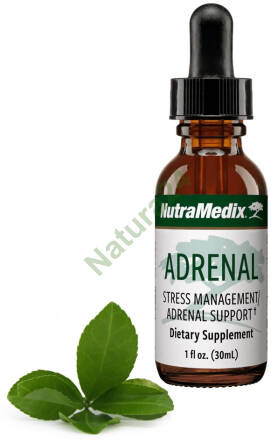



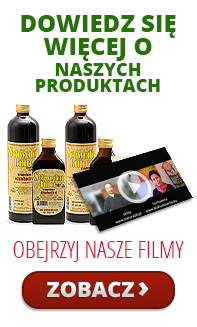
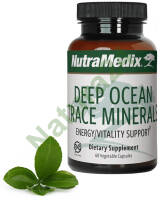
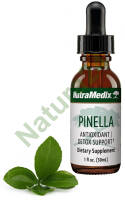
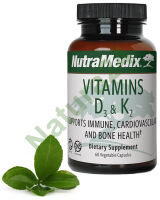
 english
english
 deutsch
deutsch
Wszystko przebiegło pomyślnie. Polecam!
SUPER KONTAKT, B. SZYBKA DOSTAWA, SUPER PRODUKT, SUPER SPRZEDAJACY - POLECAM BAAAARDZO
Z ogromną przyjemnością wystawiam komentarz POZYTYWNY!!! Wszystko sprawnie, miło i przyjemnie!!! Przesyłka ekspresowa.!!! GORĄCO POLECAM
Przesyłka wysłana w błyskawicznym tempie Juz na drugi dzień rano.Polecam w 100%.
olejek rycynowy rewelacyjny